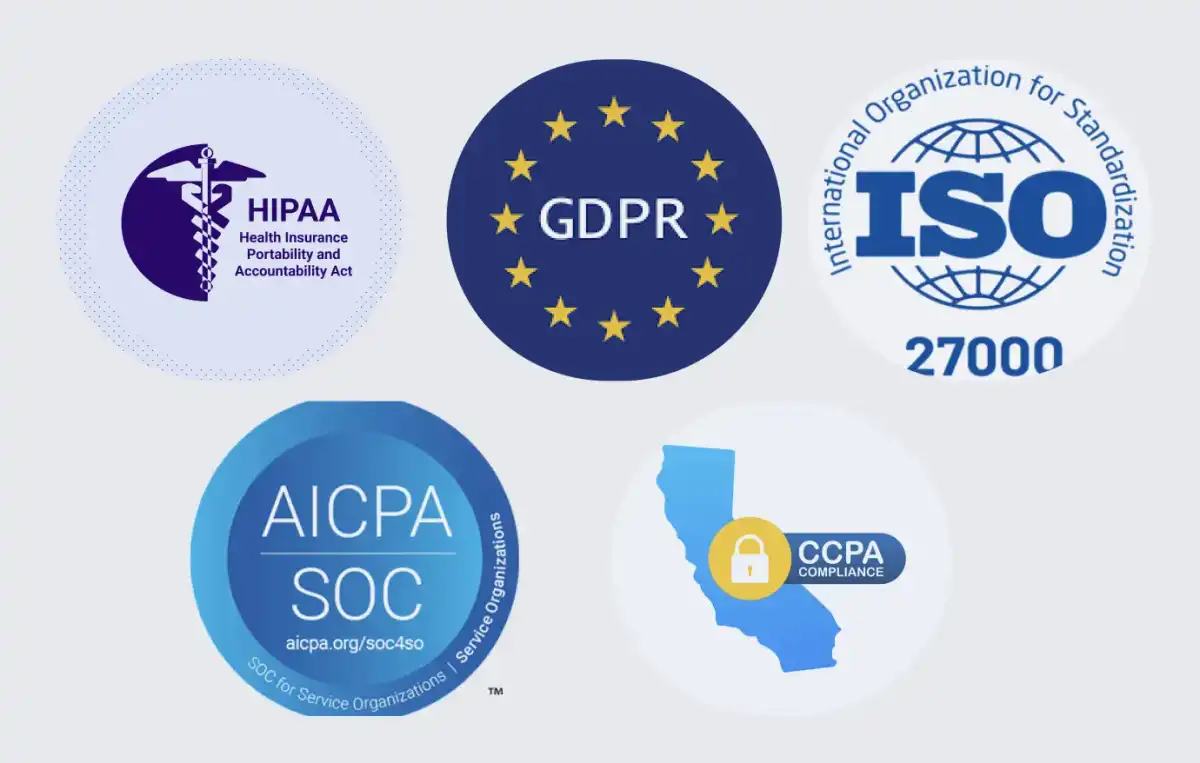Six Ways to Ensure Privacy with Transcription Services
December 2022
·
2 min read

Transcription process often involves handling sensitive information, such as personally identifiable information (PII), medical records and confidential business information.
To protect the privacy of recorded content and transcribed text, transcription companies must implement appropriate privacy and security controls. The lack of such controls could make the data vulnerable to unauthorized access.
You need to choose a transcription company that takes privacy seriously and has appropriate measures to protect the confidentiality of the data being transcribed.
Six things to keep in mind while choosing a company to transcribe your data :
1. Compliance Standards
Compliance lets us know that a company's practices and operations are within the legal and ethical requirements.
In the transcription sector, compliance also protects the privacy and security of sensitive information — confidential business discussions, personal identifiable information and protected health information.
Different countries have different laws governing data privacy. Make sure the transcription service provider you choose is compliant with relevant data privacy laws in your country.

2. Non-disclosure Agreement
NDAs establish clear expectations and responsibilities for those who handle sensitive information. This helps ensure that all parties involved are aware of their obligations which helps prevent sensitive data leakage.
3. Employee Awareness Training
Employee awareness training is another important aspect of ensuring the privacy of sensitive information. It helps maintain the trust of clients and customers.
This helps transcription companies train employees with the knowledge and skills they need to handle sensitive information responsibly, and help prevent unauthorized access, use, or disclosure of sensitive data.
In addition, employee awareness training is required to ensure compliance with relevant laws and regulations.
4. Data Encryption
Encryption is the process of encoding information in an unreadable format while being stored or transmitted.
Even if a perpetrator obtains encrypted data, they won’t be able to use it unless decrypted.
This provides an extra layer of security and helps prevent unauthorized disclosure of sensitive data.
5. Data Retention Policy
Data retention policies are guidelines and procedures a company has for storing and managing data.
These policies outline who has access to the data, how long the data is kept, and under what circumstances it is deleted.
Data retention policies inform the appropriate amount of time needed to store the data in order to meet legal, regulatory, and business requirements.
It protects an individual's privacy by ensuring their personal information is not kept longer than necessary.
6. Anonymization
Anonymization is the process of removing or hiding any personal identifying information (PII) from the transcription so that individuals cannot be identified based on the data.
It allows you to use the transcribed data for various purposes without having to worry about violating any privacy law or regulation.
Conclusion
Your transcription data might contain sensitive or personal information that must stay confidential.
By taking the above mentioned data privacy requirement into account, you ensure that your sensitive information is secure and that you are working with a reputable transcription service provider.
With a team of skilled transcribers, advanced technology, and a commitment to data privacy, Reduct offers a reliable and secure solution for all of your transcription needs.


